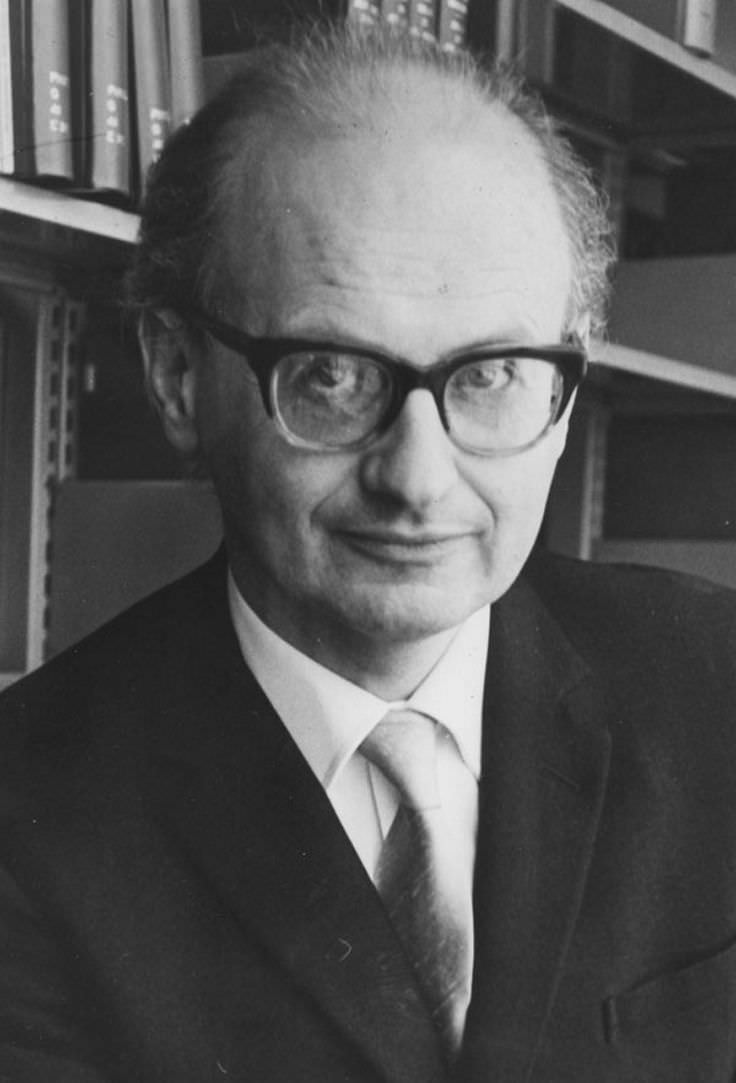Date of Birth: November 9, 1922
Zodiac Sign: Scorpio
Date of Death: February 2, 1974
Biography
Imre Lakatos was a renowned Hungarian philosopher of mathematics and science, born on November 9, 1922, in Debrecen, Hungary. He is best known for his contributions to the philosophy of science, particularly his development of the methodology of scientific research programs. Lakatos’ academic journey began at the University of Debrecen, where he studied mathematics, physics, and philosophy. His early career was marked by political activism; he was involved in the Hungarian Communist Party and worked for the Ministry of Education during the post-World War II years. Lakatos faced significant challenges due to his political affiliations, which led to his arrest and imprisonment during the Stalinist purges. After his release, he fled to the United Kingdom in 1956 following the Hungarian Revolution. In the UK, he continued his academic work, earning a doctorate in philosophy from the University of Cambridge under the supervision of R. B. Braithwaite. His seminal work, “Proofs and Refutations,” published posthumously, is a cornerstone in the philosophy of mathematics. In this work, Lakatos argued against the formalist and logicist views of mathematics, advocating instead for a more heuristic approach that emphasizes the iterative process of conjectures and refutations. His ideas have had a profound impact on how scientific theories and mathematical proofs are understood and evaluated. Lakatos held a position at the London School of Economics (LSE), where he collaborated with prominent philosophers like Karl Popper. His contributions to the philosophy of science include the concept of “research programs” as an alternative to Popper’s falsificationism, providing a more nuanced understanding of scientific progress and theory change.
5 Interesting Facts about Imre Lakatos
1. Imre Lakatos’ original name was Imre Lipschitz. He changed it to avoid anti-Semitic persecution.
2. He was imprisoned for three years during the Stalinist purges in Hungary.
3. Lakatos fled Hungary for the United Kingdom in 1956 after the Hungarian Revolution.
4. His book “Proofs and Refutations” was published posthumously in 1976.
5. Lakatos was heavily influenced by the works of Karl Popper and Paul Feyerabend.
5 Most Interesting Quotes from Imre Lakatos
1. “Philosophy of science without history of science is empty; history of science without philosophy of science is blind.”
2. “The history of science should not be written as a succession of successful theories, but rather as a series of research programs.”
3. “Science is not about certainty. Science is about finding the most reliable way of thinking at the present level of knowledge.”
4. “The hallmark of scientific theories is that they can be refuted by evidence.”
5. “Mathematics is not a finished product; it is an ever-evolving field subject to conjectures and refutations.”
Highest Net Worth Achieved
As a philosopher and academic, Imre Lakatos’ net worth is not well-documented, but his intellectual contributions have had a lasting impact on the philosophy of science and mathematics.
Children
There is no publicly available information about Imre Lakatos having any children.
Relevant Links
1. [Stanford Encyclopedia of Philosophy: Imre Lakatos](https://plato.stanford.edu/entries/lakatos/
2. [Internet Encyclopedia of Philosophy: Imre Lakatos](https://iep.utm.edu/lakatos/
3. [Biography on Britannica](https://www.britannica.com/biography/Imre-Lakatos
4. [London School of Economics: Imre Lakatos](https://www.lse.ac.uk/philosophy/about/lakatos


